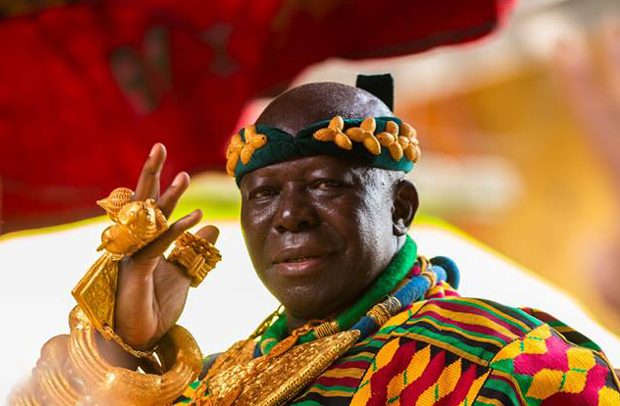Otumfuo Osei Tutu II
THE ASANTEHENE, Otumfuo Osei Tutu II, has thrown a bombshell in the United States of America where he said it was through his effort that Ghana was not plunged into chaos after the keenly contested 2016 general election.
He said he had to use his high office – the Manhyia Palace in Kumasi – to intervene at the right time when a losing candidate was unwilling to concede defeat.
Flashback
Then opposition New Patriotic Party (NPP) candidate Nana Addo Dankwa Akufo-Addo made history on December 7, 2016 when against all odds, he defeated incumbent John Dramani Mahama of the National Democratic Congress (NDC) with over one million votes margin.
While Nana Akufo-Addo’s 5,716,026 votes (53.85%) appreciated significantly vis-à-vis the votes he garnered in 2012, the votes of then President Mahama (4,713,277 votes which translates into 44.40%) dropped as compared to his votes in 2012, widening the gap with 1,002,749 votes, which made then 72-year-old Nana Akufo-Addo become the 5th President in the 4th Republic.
Sour Loser
The Asantehene did not mention the name of the said candidate but it is common knowledge that the incumbent Mahama was on his way out.
He said the loser of the elections, had issues with the outcome of the polls and that was generating high tension to the chagrin of the United Nations (UN) representative and the Diplomatic Community until he (Otumfuo) stepped in to weather the storm.
Otumfuo, who was addressing the United Nations (UN) General Assembly High Level Forum on the Culture of Peace 20th Anniversary in the UN Headquarters in New York, the United States (US), therefore said traditional leaders are still useful to national development and nation-building.
The programme was graced by the President of the UN, Maria Fernanda Espinosa Garces, and some top dignitaries from the world body.
“At the conclusion of the last presidential and parliamentary elections, the country stood on the edge of disaster. The United Nations representative and the diplomatic community were aghast and alarmed that Ghana was about to slip down the slope of the electoral violence,” the Asantehene said.
Moral Authority
“Fortunately, the moral authority of the palace was at hand. We were able to intervene to persuade the losing candidate to accept his fate and to fly both candidates for a quiet encounter to pave way for a smooth handover,”he disclosed.
“These are the highest examples of the crucial roles, behind the curtains, when the moral force of traditional authority is harnessed to protect and sustain the peace, unity and security of Ghana,” he added.
Otumfuo noted that Africa and for that matter Ghana had accepted democracy and the rule of law as the only form of governance and he as the King of Asantes, which is one of the most powerful kingdoms, had been playing his role to make democracy.
2012 Episode
Otumfuo also disclosed that in 2012, he used his high office to invite all the political parties in the country to converge on Kumasi, where they signed a declaration to respect and abide by the outcome of the presidential and parliamentary elections.
The Asantehene recounted that he had used his 20 years on the sacred Golden Stool of Asanteman to ensure that Ghana always experienced peaceful transition of political power after every presidential and parliamentary election in the country.
“During my 20 years reign as Asantehene, I have always worked to ensure smooth transition of political power after each election based on the results of the elections. I have held tripartite meetings between outgoing and incoming presidents of Ghana for smooth change of power,” he disclosed.
He argued strongly that the traditional authority in Ghana had played huge roles behind the scenes, and that had always helped to maintain and protect the peaceful environment, which is crucially needed in order to promote effective transformation.
Dagbon Crisis
Besides, Otumfuo said he led a committee of Eminent Chiefs appointed by the Government of Ghana in 2002 to successfully resolve the protracted Dagbon chieftaincy crisis in the northern part of Ghana, which had the potential of escalating into a national disaster.
“It was a crisis that could have gone out of control. It was complex like those that have given Africa a bad name, and peace has been restored there after 17 years. The Dagbon issue shows that we can always use dialogue to resolve conflicts in the world,” he said.
“I, therefore, call for a new partnership between elected government and traditional authorities, not in the spirit of rivalry, but in the spirit of authentic collaboration,” the Asante King remarked, adding that traditional leaders are agents of peace, unity and progress.
FROM I.F. Joe Awuah Jnr., Kumasi


